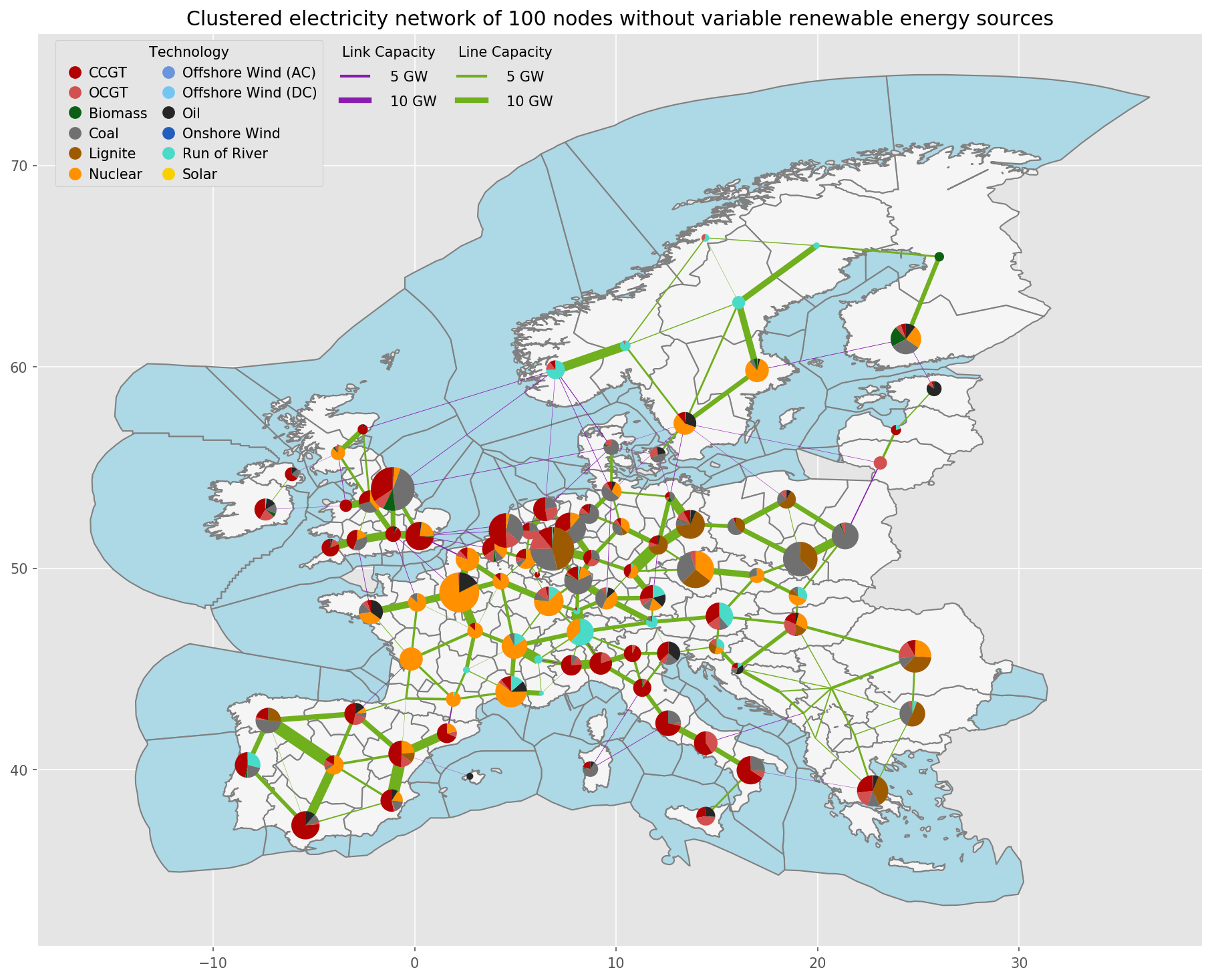| .github | ||
| .reuse | ||
| data | ||
| doc | ||
| envs | ||
| LICENSES | ||
| scripts | ||
| test | ||
| .gitattributes | ||
| .gitignore | ||
| .readthedocs.yml | ||
| .syncignore-receive | ||
| .syncignore-send | ||
| borg-it | ||
| CITATION.cff | ||
| config.default.yaml | ||
| config.tutorial.yaml | ||
| matplotlibrc | ||
| README.md | ||
| Snakefile | ||
PyPSA-Eur: An Open Optimisation Model of the European Transmission System
PyPSA-Eur is an open model dataset of the European power system at the transmission network level that covers the full ENTSO-E area. The model is suitable both for operational studies and generation and transmission expansion planning studies. The continental scope and highly resolved spatial scale enables a proper description of the long-range smoothing effects for renewable power generation and their varying resource availability.
The model is described in the documentation and in the paper PyPSA-Eur: An Open Optimisation Model of the European Transmission System, 2018, arXiv:1806.01613.
WARNING: Please read the limitations section of the documentation and paper carefully before using the model. We do not recommend to use the full resolution network model for simulations. At high granularity the assignment of loads and generators to the nearest network node may not be a correct assumption, depending on the topology of the underlying distribution grid, and local grid bottlenecks may cause unrealistic load-shedding or generator curtailment. We recommend to cluster the network to a couple of hundred nodes to remove these local inconsistencies. See the discussion in Section 3.4 "Model validation" of the paper.
The model building routines are defined through a snakemake workflow. The model is designed to be imported into the open toolbox PyPSA for operational studies as well as generation and transmission expansion planning studies.
The dataset consists of:
- A grid model based on a modified GridKit extraction of the ENTSO-E Transmission System Map. The grid model contains 6763 lines (alternating current lines at and above 220kV voltage level and all high voltage direct current lines) and 3642 substations.
- The open power plant database powerplantmatching.
- Electrical demand time series from the OPSD project.
- Renewable time series based on ERA5 and SARAH, assembled using the atlite tool.
- Geographical potentials for wind and solar generators based on land use (CORINE) and excluding nature reserves (Natura2000) are computed with the atlite library.
Already-built versions of the model can be found in the accompanying Zenodo repository.
A version of the model that adds building heating, transport and industry sectors to the model, as well as gas networks, can be found in the PyPSA-Eur-Sec repository.




